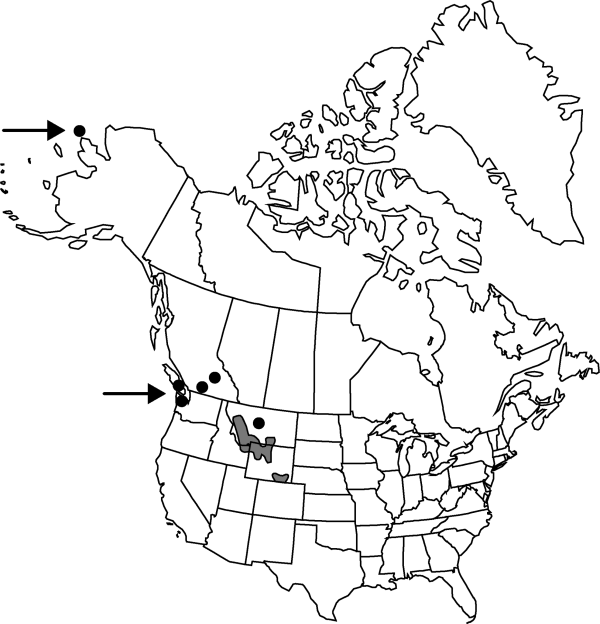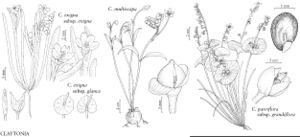Claytonia multiscapa
Fl. Rocky Mts., 263, 1061. 1917.
Plants perennial, with globose tubers 10–30 mm diam.; periderm 1–5 mm. Stems 10–30 cm. Leaves: basal leaves sometimes absent, petiolate, blades linear to narrowly lanceolate, 1–8 × 0.2–1.3 cm, apex acute; cauline leaves sessile, blade linear or linear-lanceolate, 2–10 cm, distinctly tapered. Inflorescences multibracteate; proximalmost bracts leaflike, inserted proximal to pedicels of proximalmost cluster of flowers, distal bracts reduced to membranous scales, rarely with 1 bract. Flowers 8–14 mm diam.; sepals 3–5 mm; petals white with yellow spots at base, creamy white, or rich yellow to yellow-orange, 8–10 mm; ovules 6. Seeds 1–2 mm diam., shiny and smooth to minutely tuberculate; elaiosome 1 mm or less. 2n = 16.
Phenology: Flowering May–Aug.
Habitat: Moist to dry grasslands and montane coniferous forests, often in swales with heavy, poorly drained clay soils in the south to wet, rocky tundra in the north
Elevation: 0-2000 m
Distribution

B.C., Alaska, Idaho, Mont., Wash., Wyo., Eurasia (Russia)
Discussion
Claytonia multiscapa has been the source of taxonomic differences of opinion. Local floras have treated the synonymous C. flava as a distinct species (e.g., R. D. Dorn 1977) while one regional flora (C. L. Hitchcock et al. 1955–1969, vol. 2) united it with C. lanceolata. It is treated here as a distinct species based on the electrophoretic and field work of J. S. Shelly (1998) and the author’s examination of type material.
Selected References
None.
Lower Taxa
"less" is not a number.
